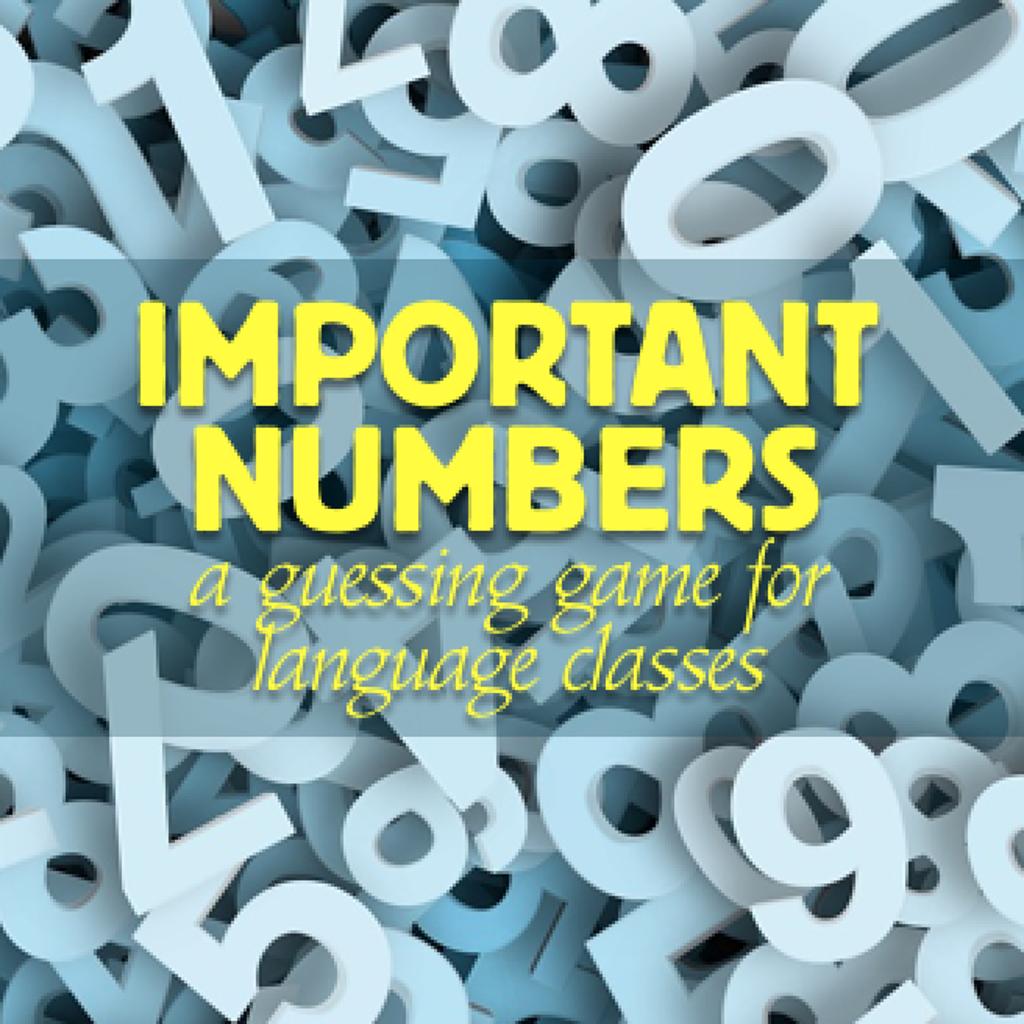Oh boy is THIS ever a great game to play! It just came through the FLTeach listserv (so I apologize to those of you that are reading it here for the second time) from a teacher that signed his or her name as BHM. It is an AWESOME activity for the first days of school in upper-level classes, since it will allow them to review all kinds of vocabulary AND get to know each other a bit better.

How to play Important Numbers
Each student should write down several numbers that are important to him or her--I think that two or three numbers would be plenty for each student, especially in larger classes. The students must be careful to choose numbers for which they are able to articulate the reason as to why it is important to them so that you can keep the input comprehensible for the duration of the activity.
For example, I could say "3" because there are three people in my family (Hay tres personas en mi familia--how easy is that?!), or "1" because I believe that there is one true God (En mi opinión, hay un Dios), or "21" because my Grandma and I share a birthday on August 21, or "49" because I live in Alaska, the 49th state. The possibilities are endless!!
How to play Important Numbers
- Select the student: Have one of your students write ONE of his or her numbers on the board and sit in front of the class.
- Set the stage: Say (in L2), "Class, (Marie) has two special numbers!" (circle for lower levels to get reps of number vocabulary and the word "has"). One number is "23" and the other is "6". (Again, circle to get reps of number vocab). The number "23" is special to Marie. What does the number "23" represent? (Or "What do you think that the number 23 represents?").
- Determine the "truth": Accept student guesses, and after each one, ask the original student whether or not it's true. For example, "Marie, do you have two dogs?" When she says no, repeat "Class, Marie does not have two dogs. The number 2 does not represent the number of dogs that Marie has." Once the truth has been uncovered (or an acceptable alternate reality has been created and developed), pick a new student and begin all over again! What fun, what fun!
Checking back in
We ended up trying this game, and it went great! When I first introduced it, we went through a lot of numbers. Since then, I've been using it as a filler activity when there are a few odd minutes left at the end of class. It has been neat to see what things matter to my students!!




